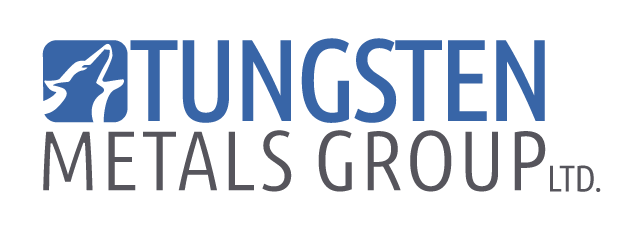the Impact of the Conflict in Ukraine on Tungsten Supply
Tungsten is an essential component of military weaponry, and demand for it has increased globally as a result of the continuing crisis in Ukraine. This article examines how the conflict affects tungsten supply chains and how it affects military capabilities across the globe.
1. The Importance of Tungsten for Military Uses
Due to its durability and density, tungsten is used extensively in military applications, especially munitions manufacturing. Thanks to its special qualities, tungsten is employed in everything from artillery shells to penetrators and kinetic bombardment weapons, making it an indispensable resource in modern warfare. Kinetic bombardment weapons are among the most prominent uses of tungsten. These powerful weapons shoot tungsten rods at high velocities in the direction of their targets, piercing the toughest armour with devastating accuracy. Tungsten, believe it or not, is even a more environmentally friendly material choice than things like depleted uranium which was used in previous flashpoints and conflicts.
2. China's Strength and Weaknesses in the Supply Chain
For nations that depend on China's tungsten supply, this dominance in the manufacturing of this critical metal presents serious obstacles. China controls roughly 85% of the world's mining production, meanwhile Russia is another global leader in production picking up a sizable remaining portion of supply control, all of which highlights the fragility of global supply networks, especially when faced with geopolitical conflicts like the conflict in Ukraine.
3. Attempts at Diversification and Strategic Initiatives
Efforts are being made to diversify the sources of tungsten production in response to the increasing demand for the metal and the requirement to reduce supply chain risks. With the help of strategic alliances, projects like the reopening of South Korea's Sangdong mine in addition to the ramp up of our own production at our Vietnamese plant are intended to strengthen supply chain resilience and lessen reliance on Chinese suppliers.
4. The Effects of the Ukrainian Conflict
Global supply networks for tungsten have been severely impacted by the conflict in Ukraine. The battle has made the supply limits already in place worse, with key manufacturers like China and Russia attempting to control the market. This has led to concerns about the availability of essential resources for military reasons.
5. The United States and its NATO Allies' Role
Since the start of the conflict, the United States in particular has been crucial in giving Ukraine significant military assistance. The NATO members have shown a strong commitment to supporting Ukraine's defence operations, providing military, financial, and humanitarian assistance totalling an astounding $76 billion from the US and $100 billion from the other partners collectively.
6. The Current Crisis: Strategic Needs and Ammunition Shortages
The diminishing ammunition stockpiles designated for Ukraine's defence efforts are a worrying reality that Western forces, especially those of NATO member nations, are having to deal with. NATO and British authorities have recently issued warnings that highlight the seriousness of the situation and the necessity of increasing ammunition production to aid Ukraine in its fight against Russian invasion.
The NATO Military Committee Chair, Admiral Rob Bauer, has pointed out how serious the situation is and that the West's ammunition stockpile has reached a "bottom of the barrel" point. This information emphasises how urgent it is to restock supplies and make sure Ukraine has the tools it needs to successfully combat persistent threats.
Nonetheless, difficulties still exist, as shown by the pressure on global ammunition supply and the requirement for accelerated delivery and procurement procedures. But coordinated action is needed to address the urgent problem of ammunition shortages and guarantee that Ukrainian troops have the resources they require to successfully counter persistent threats.
7. Reducing Hazards and Strengthening Readiness
As long as the crisis in Ukraine continues, the international community's top goals should be reducing risks and improving readiness. To strengthen Ukraine's defensive posture, this calls for investments in cutting-edge weapons and strategic capabilities in addition to increasing ammunition stocks.
Moreover, in order to maximise the effectiveness of aid distribution and guarantee that Ukraine gets the necessary help in a timely way, measures to improve coordination and collaboration across NATO member states are crucial. The international community can support Ukraine's resilience and prevent similar acts of aggression by hostile forces by pooling its resources and skills.
Concerns over military readiness are also raised by the depletion of tungsten reserves brought on by the conflict in Ukraine, especially for those countries that depend on the production of weapons. Maintaining military capabilities and strategic deterrence requires securing access to vital commodities like tungsten, given the continuous conflicts and rising tensions in numerous locations.
Even in the face of exhausted ammunition stocks, Western countries are resolute in their will to back Ukraine's defence initiatives. In order to keep Ukraine in the battle against Russian aggression, Minister James Heappey of the United Kingdom has underlined how crucial it is to continue aiding Kyiv.
Heappey's call to action is in line with the general agreement among military strategists and decision-makers, who acknowledge that strengthening Ukraine's defences is both strategically and morally necessary. Inadequate supply of ammunition to Ukrainian forces might compromise vital operations, making it more difficult for Ukraine to fend off Russian offensives and maintain its territorial integrity.
Ultimately the crisis in Ukraine has brought attention to the vulnerabilities in international supply networks as well as the significance of tungsten in military applications. Increasing the robustness of the supply chain and diversifying the sources of tungsten production will be essential to guarantee readiness for unforeseen events as countries manage geopolitical unpredictability and work to strengthen their defence capabilities.


